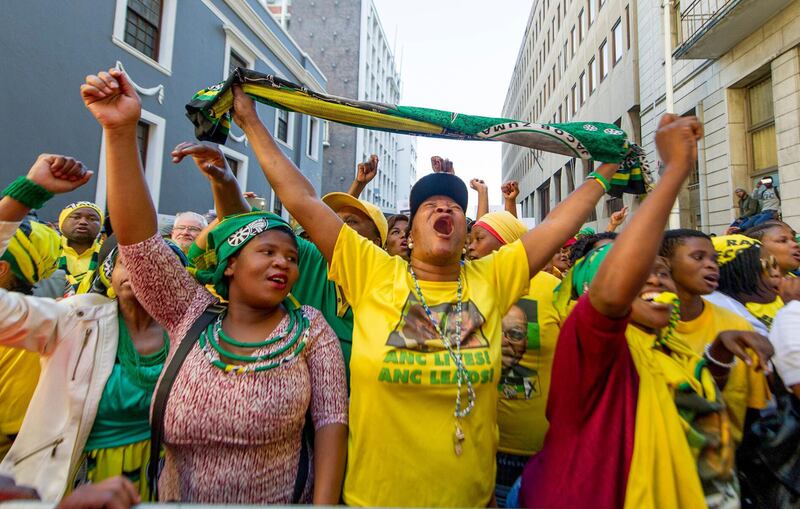South Africa's president Jacob Zuma survived a no-confidence motion against him in parliament on Tuesday.
The leader pulled in 198 votes to the opposition's 177 as African National Congress members of parliament rallied to his support. There were nine abstentions in the secret ballot.
Mr Zuma, 75, who has held power since 2009 but whose time in office has been dogged by allegations of corruption, has now survived nine no-confidence votes thanks to loyal voting by ANC members.
The vote was held by secret ballot — a decision the opposition hoped would embolden ANC members to vote against him.
Many inside the chamber erupted into singing and dancing in parliament even before the speaker of the house announced the result of the vote in favour of the 75-year-old Mr Zuma.
"The motion of no-confidence is … negative," Baleka Mbete, speaker of the 400-member parliament, said.
The ANC parliamentary party said the victory was over what it described as an attempted "soft coup".
"It has been the publicly stated intention of the opposition … to collapse government, deter service delivery and sow seeds of chaos in society to ultimately grab power," the party said.
Several opposition parties led thousands of anti-Zuma protesters outside the national assembly before the vote, while supporters of the president held a rival march.
Mr Zuma has upset investors, in particular by removing finance minister Pravin Gordhan in March. The country's credit rating was downgraded to junk by two of the top three rating agencies, unemployment is at a 14-year high of 27.7 per cent and the economy is back in recession.
His term continues until elections in 2019. The ANC is expected to replace him as party leader at its meeting in December.
The party, which has ruled South Africa since the end of apartheid in 1994, is deeply divided and several ANC lawmakers have voiced criticism of the veteran leader.





